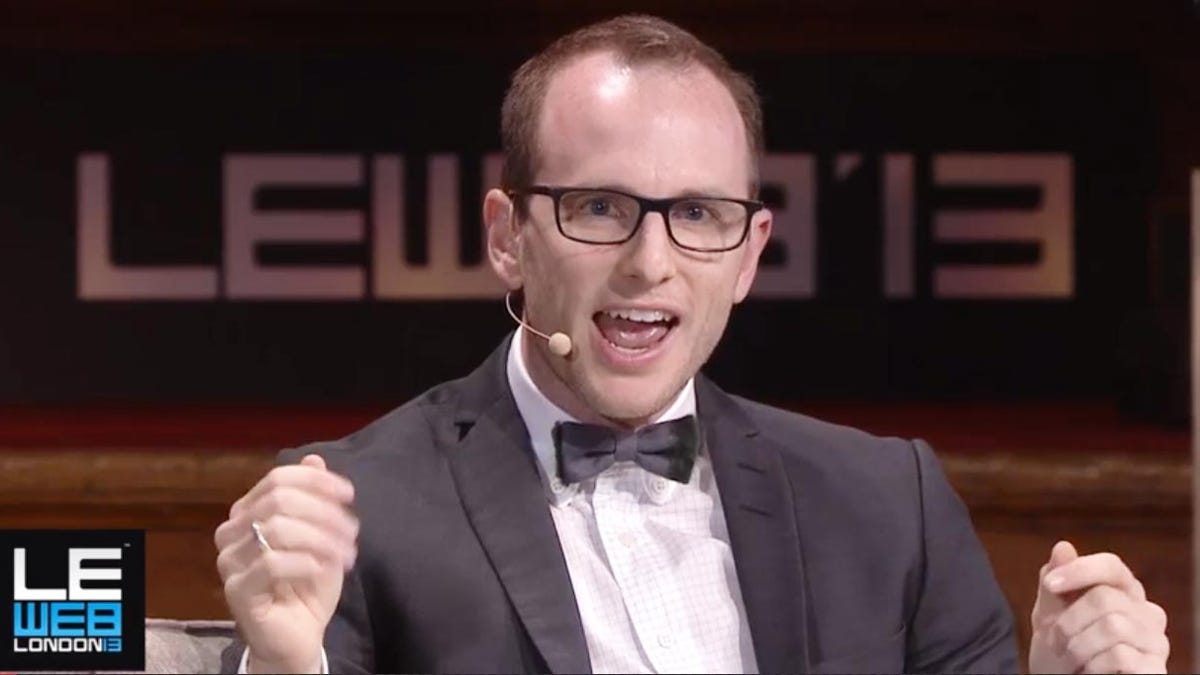Airbnb founder: Banning private rentals as silly as banning cars
Expect the will of the people to prevail when it comes to overpowering regulatory restrictions against renting out private lodgings, Airbnb Joe Gebbia argues.

Prohibitions against renting living quarters to out-of-towners are just as outmoded as attempts to ban cars shortly after their arrival in 1908, Airbnb co-founder and Chief Product Officer Joe Gebbia said Wednesday.
"Can you believe cities tried to outlaw cars in the United States? Imagine driving car for a year then going back to horse and buggy," Gebbia said at the LeWeb London conference. Eventually, though, "the policymakers adjusted to meet the demands of the people. What people demand is what the policies serve."
Of course, that message is self-serving: Airbnb is in the business of connecting travelers with places they can stay. Airbnb customers and hosts doubtless might well agree, though, particularly after being spooked by actions like New York's $2,400 fine for an Airbnb host on the grounds that he has a private residence and not a hotel. (Airbnb on Wednesday also said, in a blog post, that it will be supporting the appeal by the landlord and the Airbnb host of the judge's decision in that New York case.) Another issue is that some landlords block Airbnb on the grounds that the service essentially involves subletting an apartment.
Ultimately, regulations will catch up to his business, Gabbia predicted in an on-stage interview at the show. "We believe it's time for our invention. It appears the world agrees, given that we're in 40,000 cities in 192 countries," he said.
Airbnb has been an online business, but its future plans will try improve "how to seamlessly merge online and offline," he said, for example to make it easier to get from the airport to a rented house or to collect keys.
And he suggested that might involve partnerships with like-minded "sharing-economy" companies. "The sharing economy is about making use of any idle resource out there," he said. "We do love seeing other sharing-economy companies flourish," he said.
Airbnb's earliest days
The first customers of the service were three strangers who slept on air mattresses and got breakfast in Gebbia's San Francisco apartment during an overcrowded design conference in October 2007.
The idea for the business arrived just as Gebbia and his roommate were struggling with a 25 percent rent increase. "People sent us resumes to say they really want to stay at the 'Air Bed and Breakfast,' to give a sense of how desperate it was," Gebbia said, and in six days the pair went from the idea to actual operation.
There were problems, though, such as the awkwardness of in-person payments and the realization that people wanted to rent lodgings all the time, not just during big events. Even after notable successes, the company endured a long "completely flat period," he said. For a business to work, you need "a product and a market. We had both, but the gears weren't touching."
Now the gears are meshing. The company has "hundreds" of employees, he said.
Competition with hotels
Gebbia denied that Airbnb competes with hotels.
"I think that's a huge misconception. If you have pie chart of available accommodations, it's not like we're taking a slice out of the pie. We're making the pie bigger," Gebbia said, adding that "Airbnb was able to help expand the supply to help visitors" to the Olympics in London in 2012.
The argument only goes so far, though. Services like Airbnb can mean new price competition for hotels, and even if business travelers account for only 10 percent of Airbnb's customers, that's still a lot of people who aren't staying at hotels. And even if Airbnb is only making the pie bigger, that's growth that's not happening at hotels.
In a speech after Gebbia's talk, Douglas Atkin, Airbnb's head of community, called on people and companies to "stand up against entrenched interests,"
"Outdated laws really threaten the growth of this nascent new-world economy," Atkin said. "How much better it would be if citizens banded together...rather than companies wielding their power."
There's some irony about Airbnb trying to rally its fan base, though. The more successful Airbnb becomes and the political influence it accumulates, the more it becomes one of those entrenched interests wielding its power.
Update 8:05 a.m. PT: Made note of Airbnb's blog post stating the company's efforts to help fight the New York fine.

